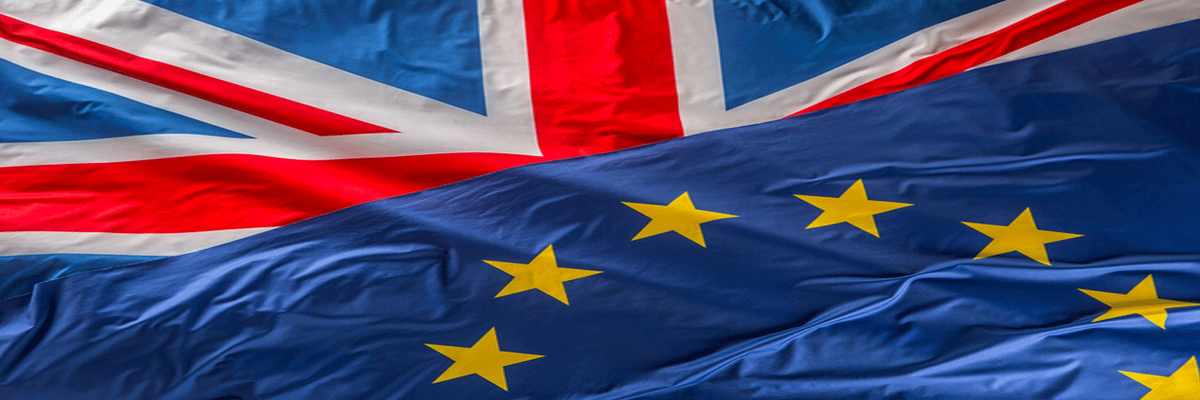Few politicians, if any, can claim to have been as crucial to the Brexit cause as Nigel Farage. Yet he is now being accused of jeopardising the whole venture. He’s insisting that in the general election his Brexit Party will stand in constituencies the Tories need to gain if they are to secure the majority in the next House of Commons they need to ‘get Brexit done’. This risks splitting the pro-Brexit vote, causing the Tories to lose office and be replaced by a government willing to hold a second referendum on whether Britain should leave the European Union at all. So is Mr Farage endangering the very cause to which he has devoted his whole political life?
Nigel Farage’s pre-eminent contribution to the campaign to get Britain out of the EU is beyond dispute. It was he who turned a fringe party, the United Kingdom Independence Party, UKIP, into a major force in British politics. Under his leadership UKIP soon posed a real threat to the Conservatives and this was central to the decision of the Tory Prime Minister, David Cameron, to hold a referendum on Britain’s membership of the EU. His aim was to win the referendum, close down the issue for the foreseeable future and see off the UKIP threat to the Conservative Party.
But that’s not how it worked out. Mr Cameron lost the 2016 referendum, and although Mr Farage was kept out of the leadership of the main Leave campaign, it was he who had built the momentum that caused his side to win it.
Then, having resigned the leadership of UKIP and half-bowed-out of politics, he watched from the side-lines as the new Tory prime minister, Theresa May, botched the negotiations for Britain’s withdrawal from the EU. The prospect of Brexit being thwarted by what he considered a bad deal was too much for him and he founded the Brexit Party to make sure that Brexit really did mean Brexit.
His party’s humiliation of the Conservative Party in the European Parliament elections this summer confirmed the abiding force of Nigel Farage and he announced that in the forthcoming general election his new party would field candidates in six hundred seats across the country.
What he really wanted, though, was an electoral pact with the Tories. Constituencies would be divided between the two parties so that his party had a chance of winning seats that he claims the Tories could never win and so securing a strong pro-Brexit majority in the Commons. He even recruited his friend Donald Trump to advocate such a move. The American president said on Mr Farage’s radio phone-in programme that if his friends Boris and Nigel got together they’d be unstoppable. But the Tories weren’t having any of this. For one thing they feared that if they got too close to Mr Farage and his Brexit Party they would drive otherwise Tory-inclined Remain voters into the hands of the Liberal Democrats.
The dilemma facing Mr Farage as the election got underway was that if he persisted in standing in all six hundred seats he risked splitting the pro-Brexit vote and producing a House of Commons in which there might be a majority for a second referendum that might well reverse the decision of the first, losing Brexit altogether. So on Monday this week Mr Farage risked the wrath of many of his party’s candidates, limbering up for the election fight, by announcing that those standing in seats currently held by the Conservatives – 317 of them – would be stood down to give the Tories a free run.
But although this move was applauded by many, including within the Brexit Party itself, he was criticised for not going far enough. He needed to withdraw his party from even more seats, they said, namely those seats that the Tories need to gain in order to win a majority.
The Conservative strategy for winning the election is clear enough. Boris Johnson knows that what is seen as his ‘hard Brexit’ policy alienates many pro-Remain or soft-Brexit Conservative voters many of whom will desert the Tories for other parties, especially the Liberal Democrats. This will result in the Conservatives losing seats they currently have. Since they start the election campaign with no majority at all, the loss of further seats means they have to gain even more new seats in order to win a majority.
The seats they have in their sights are Labour-held seats in Wales, the Midlands and the north of England which voted Leave in the referendum and where there is believed to be widespread disillusion with Jeremy Corbyn’s Labour Party. These are the seats the Tories vitally need to win but in which the Brexit Party is also standing and they are the seats Mr Farage was under strong pressure earlier this week to withdraw from too. But he refused.
His argument is that there are some ‘Labour’ seats the Tories have absolutely no chance ever of winning, so strong is the anti-Conservative sentiment in them. But, he claims, the Brexit Party could well steal them from Labour. What was needed was a pact in which the Tories would withdraw their candidates from those seats and the Brexit Party would withdraw in Labour marginals where the Tories do stand a chance. But the Tories continued to refuse.
Mr Farage said: ‘I made a generous offer to the Conservative Party …. I just gifted them a couple of dozen seats and I did it because I believe in Leave. Now if they believed in Leave what they would do is stand aside in some seats in Labour areas where the Conservative Party has not won for 100 years and will never win. .. I would have expected, having put country before party, to perhaps have got something back from the Conservatives. But no, nothing is good enough for them.’
The Tory Party said: ‘We don’t do electoral pacts. … The only way to get Brexit done … is to vote for your local Conservative candidate’. And the party chairman, James Cleverly, said: ‘I’m telling you that I have no truck with a pact or agreements. Nigel Farage has asked for one for months. We said no.’
Some of Mr Farage’s strongest allies have said he should have acknowledged that the Tories were never going to agree to a pact and that he should have unilaterally withdrawn Brexit Party candidates from seats the Tories have a chance of taking from Labour for the greater good of the Brexit cause. Arron Banks, the billionaire who has financed many pro-Brexit campaigns (though Mr Farage insists he hasn’t given a penny to the Brexit Party) said: ‘Nigel reminds me of a gambler at a casino that’s been winning all night and it’s time to take the chips off the table and step away. What we are offering the geezer, as you might say, is Brexit.’
Mr Farage claims that people ‘deep inside Number 10 Downing Street’ have been offering Brexit party candidates jobs and inducements to stand down in key seats and that he and eight other senior figures in the Brexit Party have had the prospect of peerages offered them in return for doing so. He also claims his candidates have been deluged with thousands of phone calls, emails and even threats in order to get them to stand down, a claim Mr Cleverly says is ‘completely unfounded’.
So, as we head into the last month of the campaign, it’s clear that the Conservative and Brexit parties will be fighting each other in Labour seats one or other needs to win in order to secure a pro-Brexit majority in the next Parliament. If the result is that neither wins them and Boris Johnson’s Tories yet again fall short of a majority then there is a real possibility that a government will emerge committed to holding a second referendum on British membership of the EU and that that referendum could result in Britain deciding to stay.
Is Mr Farage therefore risking the loss of the goal he has spent his entire political life trying to secure and which he is so close to achieving? Or was Boris Johnson wrong to refuse a pact with Mr Farage? Should Mr Farage have unilaterally backed down in the key seats once he saw a pact wasn’t going to happen, or not? Do you think in the end it will matter that the two pro-Brexit parties are fighting each other in vital seats? And if you are pro-Brexit, who will you blame if the election produces an outcome that risks Brexit altogether?
Let us know what you think.








